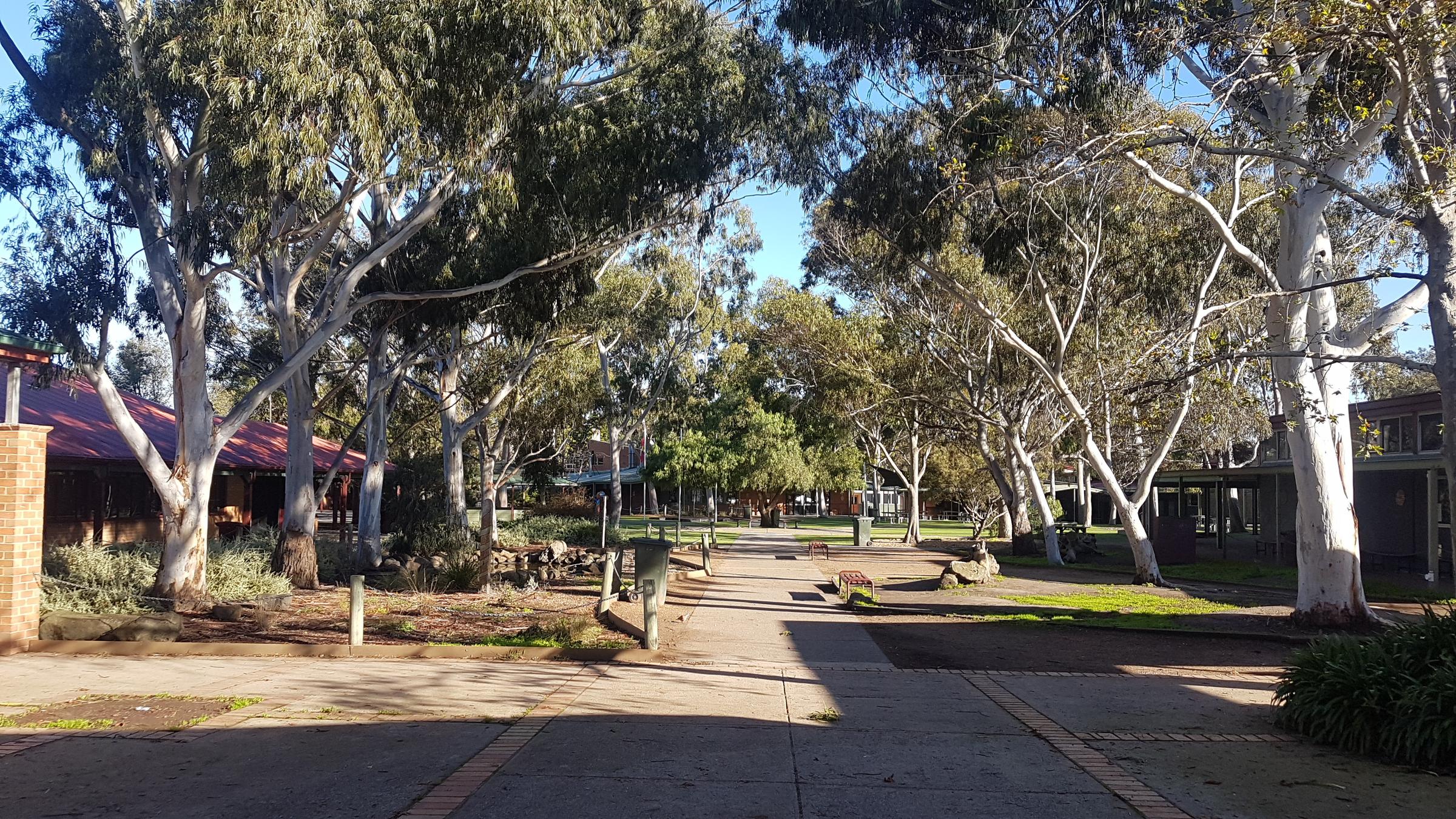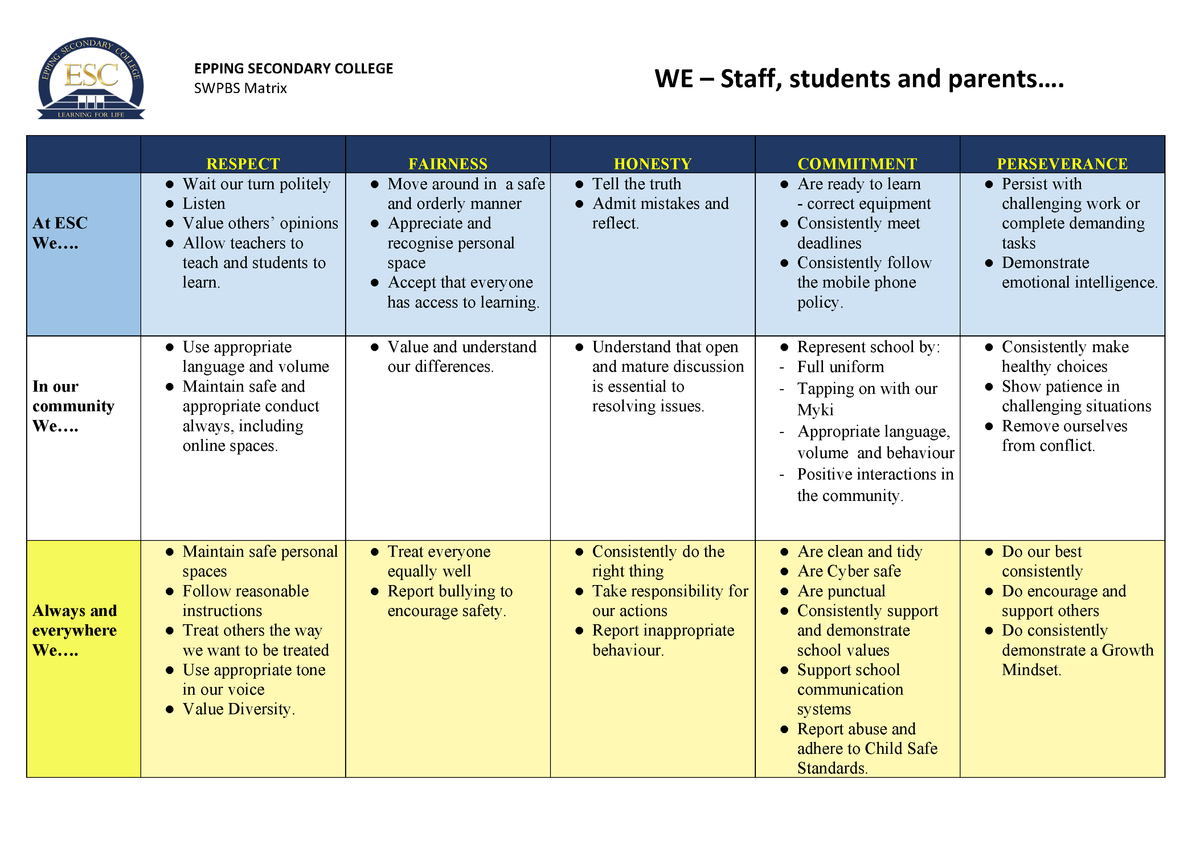Principal's Report
Brad Moyle

Principal's Report
Brad Moyle


Almost thirty years ago in the International Year of the World’s Indigenous Peoples, Australia held its first Reconciliation Week activity. Today, Reconciliation Week is celebrated in schools, businesses, and community groups across the country. The word ‘Reconciliation’ comes from the Latin word reconcilliare meaning ‘go back’ and 'bring together’. We understand this in modern terms to make friendly or to restore relationship.
Reconciliation Week is held annually and commemorates two significant milestones in the reconciliation journey - the Anniversary of the 1967 Referendum which saw the removal of discrimination of our First Nations’ people in the Constitution and Mabo Day, Friday 3rd June, which marks the historic Native Title finding of the High Court. It is during this week that we are reminded of the journey we are all on to restore the relationships between Indigenous and non-Indigenous people.
Reconciliation can partly be achieved through education - when our young people are taught the history of this nation, there is a greater understanding of why we need to close the gap for our Aboriginal and Torres Strait Islander people. When we know the truth about the policies that lead to the stolen generations, we can start to appreciate the need to ‘go back’ and ‘bring together’.
Recently, we saw a change of Government in the election and the immediate acts of reconciliation shown - a promise to enshrine a voice for Indigenous people in the Constitution as outlined in the Uluru Statement from the Heart and the installation of the Aboriginal and Torres Strait Island flags in the press conference. Not to mention the record number of indigenous Members of Parliament voted in to serve our Country.
But it is not only up to our schools and governments to enact Reconciliation. It is every one of us - and its benefits are just as profound for non-Indigenous people. True reconciliation stamps out racism for people of all cultural backgrounds and bigotry for all people who experience disadvantages such as people with disabilities. A little kindness to everyone has a ripple effect that can be felt the world over.
At Epping Secondary College, I see tiny acts of kindness every day - in the smile of a student, when a student picks up a piece of litter instead of walking past it, when a teacher gives up their lunch break to go over a topic that a student missed in class. I also see huge acts of generosity and compassion - this last week a group of VCAL students and staff spent an evening serving "our friends on the street" who are doing it tough in partnership with 'The Big Umbrella".
The challenge for all of us to do just as the theme of National Reconciliation Week says - be brave, make change. Be brave enough to stand up to racism, bullying and nasty behaviour when you see it and take steps every day in our lives to make positive relationships with those around us and then restore them when those friendships are strained.
Take up the challenge. Be Brave. Make Change.
As a school community we are continuing to ensure that each and every student is supported with their learning and wellbeing, all with the aim of supporting the growth and development of well rounded citizens who are equipped with the skills to be learners and leaders of our communities in the future. A part of this work includes supporting students with their choices and behaviours that they exhibit as a student at Epping Secondary College. This support is guided by our school values of Commitment, Respect, Honesty, Fairness and Perseverance, together with our School Wide Positive Behaviour Support Matrix (see below) and the use of restorative conversations and logical consequences.


As a school we will often provide students with the opportunity to represent the school in the broader community, this might be through excursions, sporting events or volunteer opportunities. We would like to remind all students and parents that representing the school is a privilege for our students and as such student participation will be guided by student’s behaviour, attitude and choices at school. For example, students suspended for poor choices around behaviour may not be considered as suitable candidates for camps or representing the school at sporting events. These decisions will be made on a case by case basis and communicated with parents/carers where required.
As a staff team at Epping Secondary College we know and understand that there will be times when activities at school, actions taken by the school or communications with the school may cause parents and carers to become upset, angry or frustrated. Wherever possible our staff team are committed to working through any issues or difficulties that students and families may be experiencing. Thank you to the vast majority of our families who handle these situations in a sensitive, proactive, positive and respectful manner.
We do ask all parents and carers, that when addressing these issues that this is done in a respectful manner with our staff team. Not only does this enable us to resolve an issue but also allows us to maintain a positive working relationship, which in the long run only supports the positive outcomes for our students.
Detailed below is an extract from our Respect for School Staff Policy, we ask that parents/carers are familiar with this and remember this when contacting the school over matters involving their children.
Staffing, like in many industries at present is a genuine challenge for the College. In 2022 this has resulted in challenges of both recruitment and retention as the teacher labour market responds to the shortage of teaching staff. As a result of changes this term we are delighted to welcome Ms Gaby Pauchnik as a new member of our Visual Arts Team and shortly should be able to announce some new appointments to our English team for Semester 2.
We look forward to the following teachers resuming with us on a part-time basis from the start of Term 3, Ms Ally Drohan, Ms Maddie Austin and Ms Sarah Darling.
At the system level, I suspect the Department of Education is beginning to realise that COVID-19, combined with the flu season may well pose a serious threat to teacher supply as more and more colleagues succumb to one or the other. Having said that we will continue to ensure that there are teachers in front of classes even if they are not always the regular teacher of that class. It is a balancing act; and I thank you all in advance for your understanding and support as we work through this challenging time in the pandemic.
What we have learnt is that it continues to be critical for teachers, students, and parents to stay at home when they display any sort of symptoms – COVID-19 or otherwise. This will go a long way to limiting the spread of further illness. Our next batch of Rapid Antigen Tests will be heading home with students this week. In the event that your son or daughter is away and misses out on receiving a box, please ask them to drop by the office to collect one.
Influenza is a highly contagious viral infection, spread by contact with fluids from coughs and sneezes. Young children often come into contact with, and spread viruses, including the influenza virus. Remember, everyone has the potential to spread flu to at-risk groups – the over 65s, pregnant women, children under five, people of Aboriginal or Torres Strait Islander origin and anyone with a weakened immune system.
We have all worked extremely hard over the past months to test when needed and adhere to the Government regulations around COVID-19. We are grateful for your support and that you continue to check your child/ren using RATs. If your child/ren are negative on a RAT/PCR but are still showing signs and symptoms of COVID-19 please keep them safe at home where they can recuperate from their illness.
Students that present at First Aid with any of the symptoms (below) will need to be collected from school. We understand the strain this places on families; however, we must ensure the wellbeing of all our school community.